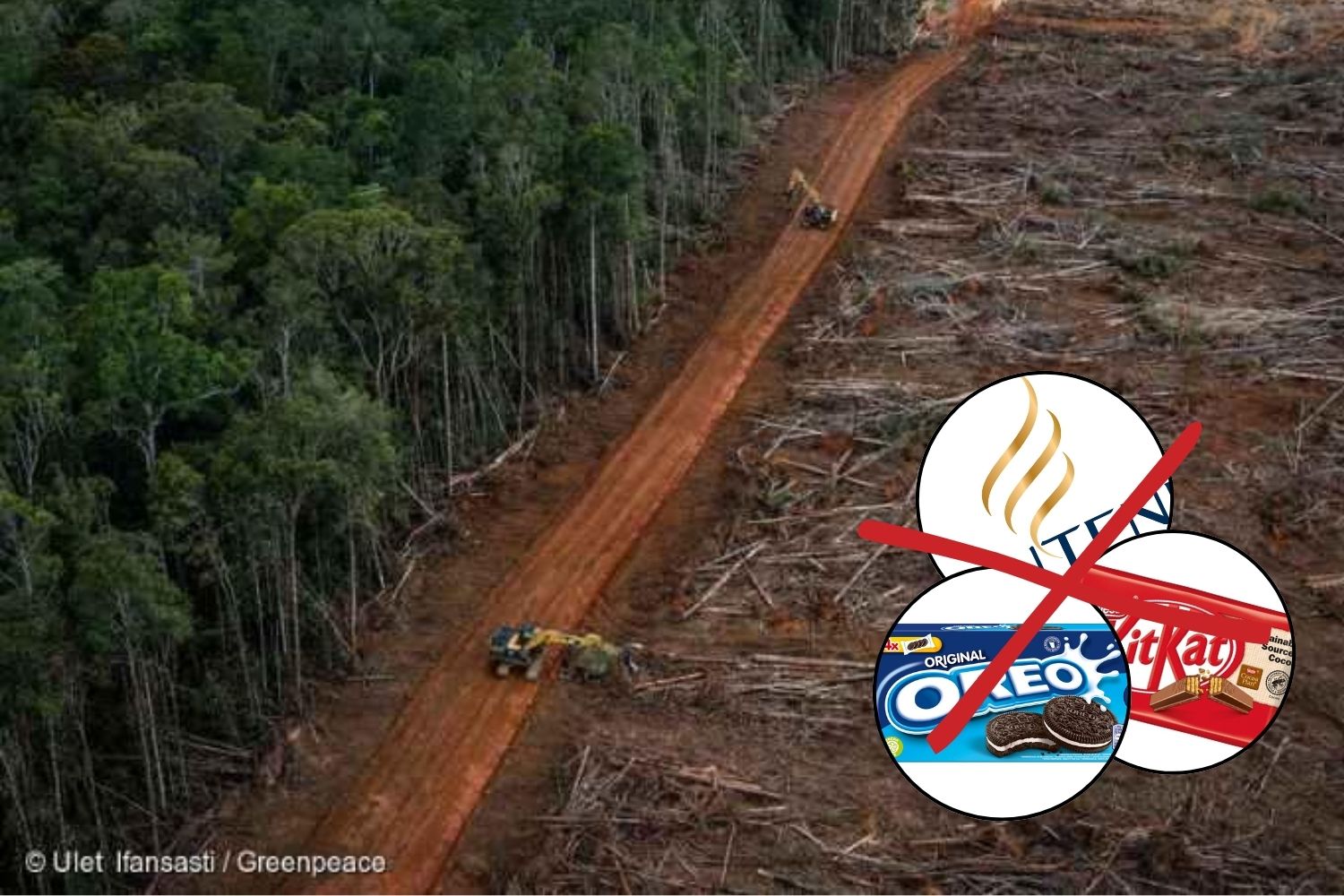Thousands of acres of rainforest have been cut down to produce palm oil used in Nestlé and Mondelēz products. The campaign is led by the indigenous tribes of West Papua.

The systematic abuse of West Papuans by the Indonesian government is one of the greatest human rights crises of our time—and hardly anyone talks about it. For the indigenous peoples of West Papua, this isn’t just about political control. It’s about survival.
They describe it as a “silent genocide”—or more precisely, “ecocide”—a term that captures both the destruction of their people and the dismantling of their land.
A land rich in resources, but cursed by exploitation
West Papua, a region under Indonesian control since 1963, is one of the most resource-rich areas on the planet. It contains the world’s third-largest rainforest and the largest gold and copper reserves known to man. But for the indigenous people who have called this land home for generations, these riches have brought nothing but suffering.
Instead of benefitting from their homeland’s abundance, the native Papuan communities have endured human rights violations, displacement, and environmental destruction—all in the name of economic growth.
One of the primary culprits? Massive palm oil plantations. These operations have caused sweeping deforestation, wiping out ancient forests to make room for palm oil production—an ingredient found in everyday global products like KitKat, Oreo, Ritz Crackers, Pantene, and Herbal Essences.
The (non) rights of Indigenous people in Indonesia
According to the International Work Group for Indigenous Affairs (IWGIA), Indonesia is home to 50 to 70 million indigenous people—about 18-19% of its population. While the country technically has laws recognizing indigenous communities, in practice, their rights are almost entirely ignored.
“Indonesia signed the UN Declaration on the Rights of Indigenous Peoples, but claims the concept of ‘indigenous peoples’ doesn’t apply to its own population.”
Worse still, Indonesia has refused to ratify the ILO Convention 169, which would offer stronger protections for indigenous groups, including the right to self-determination.
The boycott: a cry for justice
In response, indigenous groups are calling for a boycott of KitKat and other products that use palm oil sourced from West Papua. Activists—many of them native Papuans—argue that the palm oil trade is fueling an environmental and human rights catastrophe.
They claim that entire communities have been forcibly evicted from ancestral lands, subjected to violence, and silenced through repression. For them, this is more than a conservation issue—it’s a struggle for survival and dignity.
The boycott has garnered growing international support. More than 90 indigenous tribes and numerous political and religious organizations are backing the campaign, demanding an end to both the ecocide and the violations of human rights.
“This isn’t just about deforestation. It’s about a modern form of colonialism.”
Activists argue that the Indonesian presence in West Papua is not just illegal, but also colonial in nature. They highlight the exploitation of natural resources without consent from the local population as a direct continuation of colonial-era abuses.
Over 500,000 dead, millions of acres destroyed
In the past 60 years, it’s estimated that more than 500,000 people have died due to state violence and persecution. Meanwhile, millions of acres of rainforest have been clear-cut to make room for palm plantations, mining operations, and other extractive industries.
Corporations implicated in the crisis have issued varied responses. Nestlé, for instance, claims to uphold strict standards to ensure its palm oil supply chain is deforestation-free. But such statements ring hollow to the people whose land and lives are being destroyed.
Indonesian authorities, on their part, have tried to downplay the crisis, insisting that palm oil development is critical for the region’s economic growth. To the Papuan people, this justification is nothing more than an excuse to legitimize exploitation.
A protest bigger than kitkat
The boycott of KitKat is not merely about one candy bar—it is a symbolic protest against a system that puts profit before people. At its core, it’s a demand: Let us live in peace on our land. Stop destroying what is ours. Stop killing us.
For West Papua’s indigenous communities, recognition, autonomy, and protection of their land aren’t optional—they’re essential for their survival.
